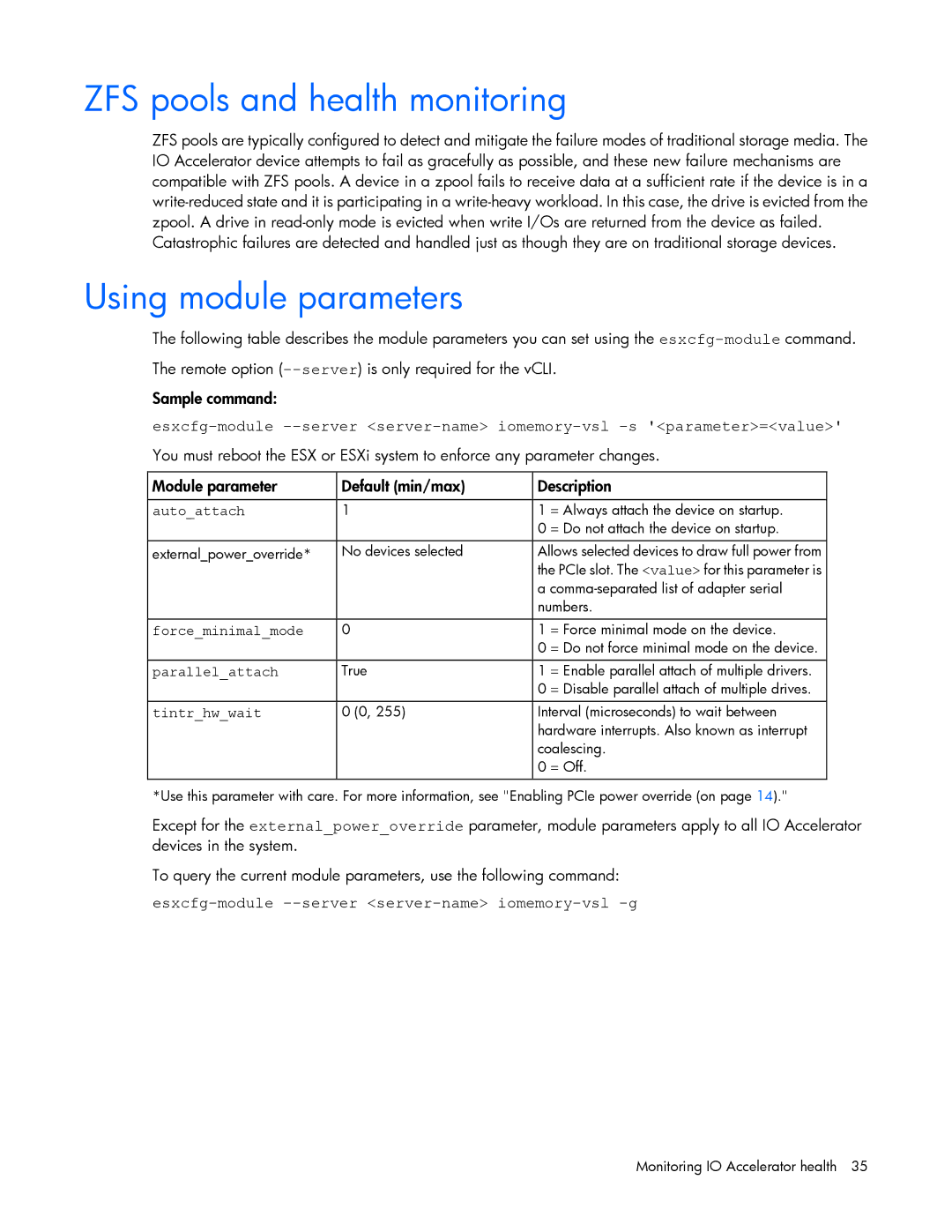ZFS pools and health monitoring
ZFS pools are typically configured to detect and mitigate the failure modes of traditional storage media. The IO Accelerator device attempts to fail as gracefully as possible, and these new failure mechanisms are compatible with ZFS pools. A device in a zpool fails to receive data at a sufficient rate if the device is in a
Using module parameters
The following table describes the module parameters you can set using the
Sample command:
You must reboot the ESX or ESXi system to enforce any parameter changes.
Module parameter | Default (min/max) | Description | |
|
|
|
|
auto_attach | 1 | 1 | = Always attach the device on startup. |
|
| 0 | = Do not attach the device on startup. |
external_power_override* | No devices selected | Allows selected devices to draw full power from | |
|
| the PCIe slot. The <value> for this parameter is | |
|
| a | |
|
| numbers. | |
|
|
|
|
force_minimal_mode | 0 | 1 | = Force minimal mode on the device. |
|
| 0 | = Do not force minimal mode on the device. |
parallel_attach | True | 1 | = Enable parallel attach of multiple drivers. |
|
| 0 | = Disable parallel attach of multiple drives. |
tintr_hw_wait | 0 (0, 255) | Interval (microseconds) to wait between | |
|
| hardware interrupts. Also known as interrupt | |
|
| coalescing. | |
|
| 0 | = Off. |
|
|
|
|
*Use this parameter with care. For more information, see "Enabling PCIe power override (on page 14)."
Except for the external_power_override parameter, module parameters apply to all IO Accelerator devices in the system.
To query the current module parameters, use the following command:
esxcfg-module --server <server-name> iomemory-vsl -g
Monitoring IO Accelerator health 35
